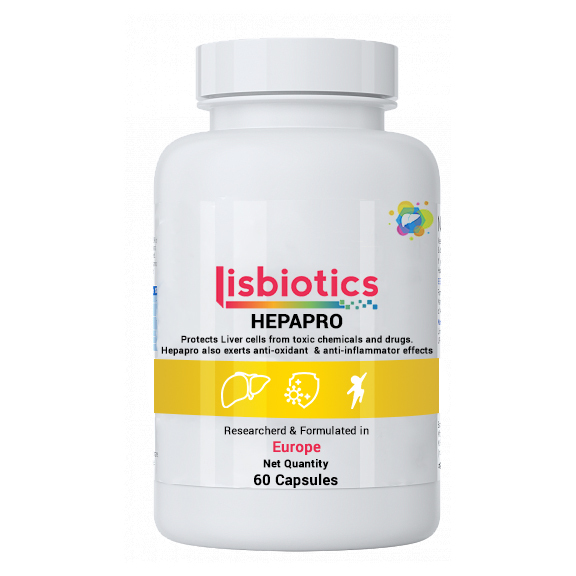Lisbichol
Lisbichol
LISBICHOL was designed by our metabolic investigating area in order to treat the hypercholesterolemia.
High Cholesterol levels may be caused by several different factors including genetics, age, and lifestyle.
Some people may develope high cholesterol due to its genetics that makes them o have high blood cholesterol levels, also age is a risk factor for high cholesterol as your body can not metabolise the cholesterol as in prior life stages and the Lifestyle is one of the biggest risk factors for high cholesterol for people of any age.The factors to be controlled are :
- Diet lower in fats and Trans fats
- Smoking, since it rises cholesterol
- Physical activity , it decrease the blood cholesterol levels.
Maintained cholesterol blood levels may produce vascular accidents in brain or heart due to the deposits formed by cholesterol thanks to an oxidation reaction in the arteries.

About this product:
LISBICHOL contains 10 mg Monacolin K plus 30 mg Coenzyme Q. We selected this formula based in a clinical trial made over 104 subjects.
Monacolin K is a substance that’s extracted from fermented rice with the yeast called Monascus purpureus.
Red yeast rice extractdoes not only contain monacolin K, it may have up to 12 different monacolins. These are not all useful.
The only monacolin with a marked activity on cholesterol is monacolin K.
Coenzyme Q 10 is produced in our body by the same metabolic route that cholesterol so the statins that inhibite the production of cholesterol in the liver also slow down its production.
This coenzyme also is an antioxidant, so it also helps to avoid the formation of the cholesterol plaques in the arteries.
This enzyme also produces energy in our muscles, and its deficit is associated with muscle cramps and pains that some patients treated with statins.
References
Mazza A, Lenti S, Schiavon L, Di Giacomo E, Tomasi M, Manunta R, Torin G, Townsend DM, Rubello D. Effect of Monacolin K and COQ10 supplementation in hypertensive and hypercholesterolemic subjects with metabolic syndrome. Biomed Pharmacother. 2018 Sep;105:992-996. doi: 10.1016/j.biopha.2018.06.076. Epub 2018 Jun 19. PMID: 30021394; PMCID: PMC6361161.
